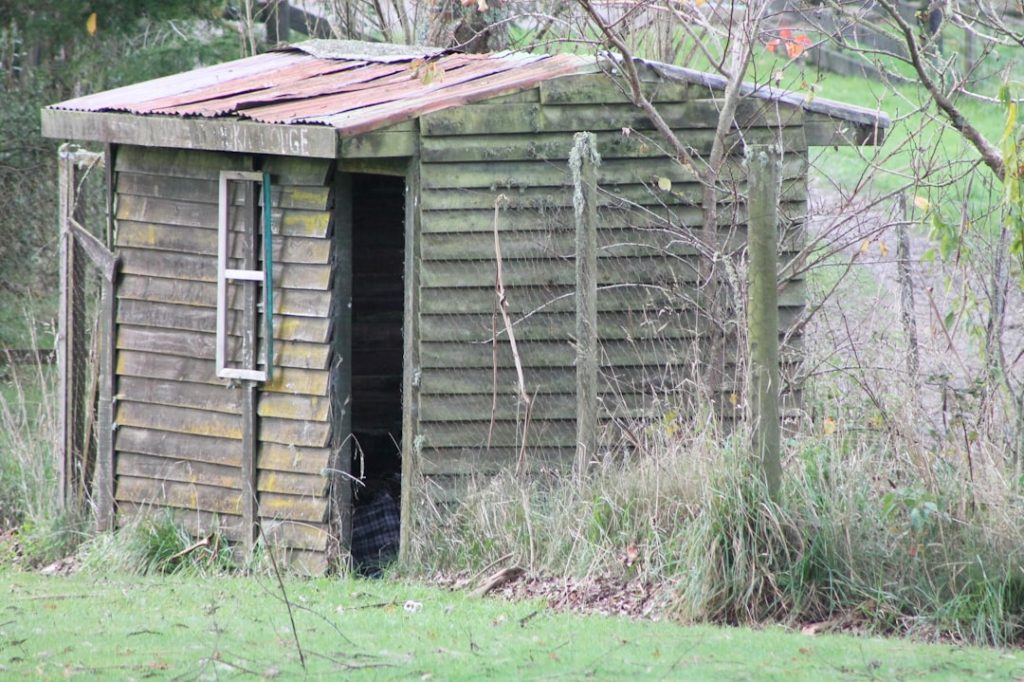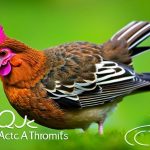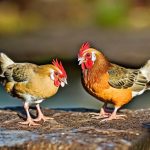The interaction between chickens and squirrels presents an intriguing ecological dynamic. Chickens, domesticated members of the Galliformes order, are commonly raised for their eggs, meat, and ability to control pests. Squirrels, wild rodents belonging to the family Sciuridae, are recognized for their agility and foraging skills.
When these species encounter each other, their behaviors and interactions can significantly impact their shared environment. Chickens exhibit social and inquisitive behaviors, often engaging in ground scratching, insect consumption, and vocalizations for communication. Squirrels are characterized by their swift movements, arboreal abilities, and nut-gathering activities.
They also use vocalizations, particularly chattering, to communicate. The convergence of these species in a shared habitat can result in various ecological consequences. Their interactions may influence food availability, territorial disputes, and overall ecosystem balance.
Understanding these interspecies dynamics is crucial for effective wildlife management and maintaining biodiversity in areas where both chickens and squirrels coexist.
Table of Contents
Key Takeaways
- Chickens and squirrels have a complex relationship in the yard, with both species exhibiting unique behaviors.
- Chickens are known to peck at squirrels, but this behavior does not necessarily keep squirrels away from the garden.
- Having chickens in the garden can provide benefits such as pest control and fertilization.
- Managing chickens and squirrels in the yard requires finding a balance to ensure the well-being of both species.
- Other methods for keeping squirrels away include using repellents and creating barriers, but these may not always be effective in the long term.
The Behavior of Chickens and Squirrels
Behavioral Differences
Squirrels, on the other hand, are known for their agility and ability to climb trees and jump from branch to branch. They are often seen as pests in gardens and can cause damage to plants and crops.
Interactions and Confrontations
When chickens and squirrels interact, it can lead to a variety of behaviors. Chickens may chase squirrels away from their territory, peck at them, or make loud noises to scare them off. Squirrels, on the other hand, may try to steal food from the chickens or cause damage to their coop.
The Environmental Impact
These interactions can lead to a dynamic relationship between the two species that can have both positive and negative effects on the environment.
Do Chickens Keep Squirrels Away?
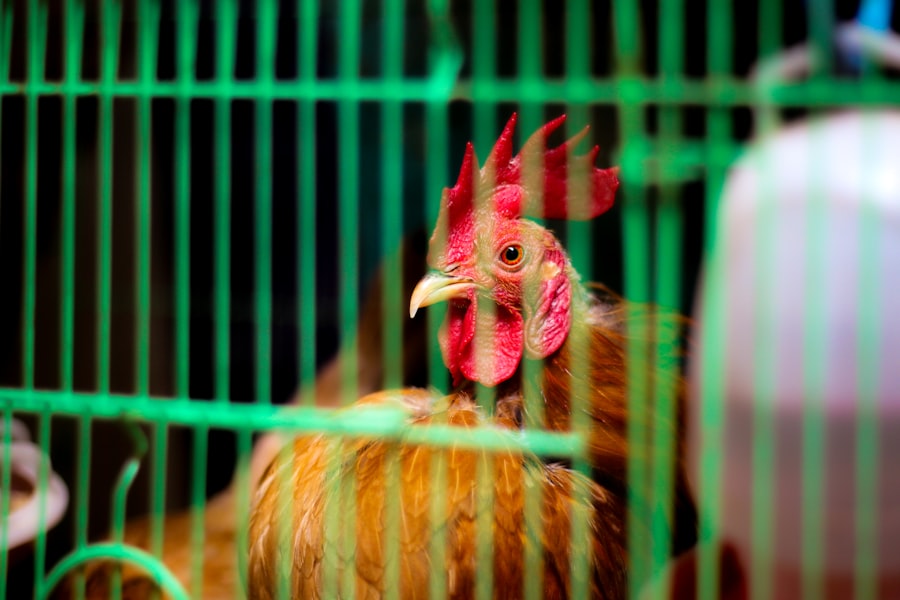
One common question that arises when discussing the relationship between chickens and squirrels is whether chickens can keep squirrels away. While chickens may chase squirrels away from their territory, they are not always effective at keeping them out of the garden or yard. Squirrels are agile and quick, and they can easily evade the efforts of chickens to keep them away.
Chickens may be able to deter squirrels from certain areas of the yard or garden, but they are not a foolproof method for keeping them away. In some cases, chickens may even attract squirrels to the area by providing them with a potential food source. Therefore, while chickens may have some impact on squirrel behavior, they are not a guaranteed solution for keeping them away.
The Benefits of Having Chickens in the Garden
Despite the challenges of managing the relationship between chickens and squirrels, there are many benefits to having chickens in the garden. Chickens are natural pest controllers and can help keep insect populations in check. They will scratch at the ground and eat insects, which can help reduce the need for chemical pesticides in the garden.
In addition to pest control, chickens also provide valuable fertilizer for the garden. Their droppings are rich in nutrients and can be used to fertilize plants and improve soil quality. This can lead to healthier plants and better yields in the garden.
Furthermore, chickens can also help aerate the soil as they scratch and peck at the ground, which can improve overall soil health.
Managing Chickens and Squirrels in the Yard
Managing the relationship between chickens and squirrels in the yard can be a challenging task. One approach is to provide separate areas for chickens and squirrels to minimize interactions between the two species. This can be done by using fencing or netting to create designated areas for each species.
Another approach is to provide distractions for squirrels to keep them away from the chicken coop or garden. This can be done by providing squirrel feeders or planting squirrel-friendly plants in a separate area of the yard. By providing alternative food sources for squirrels, it may reduce their interest in the chicken coop or garden.
Other Methods for Keeping Squirrels Away
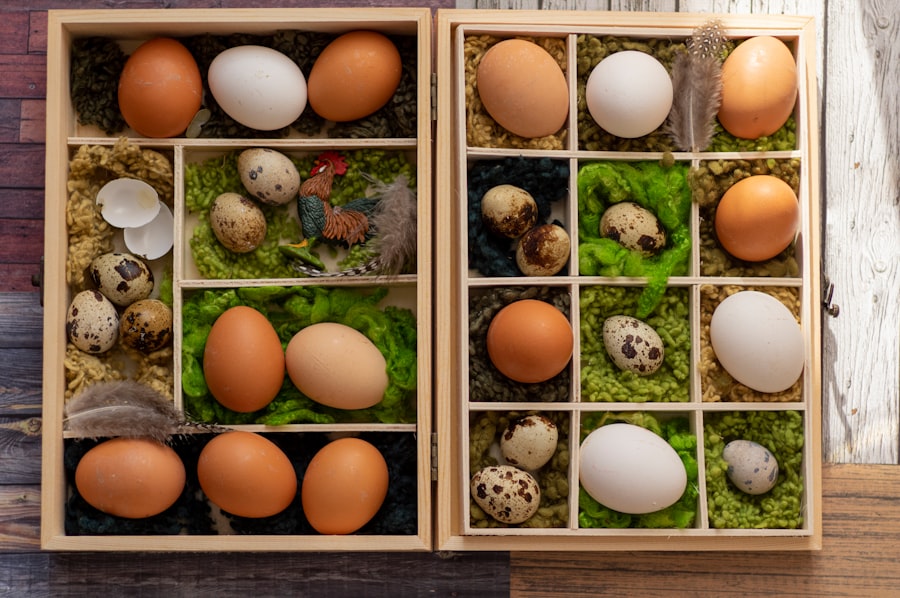
Physical Barriers: A Simple Solution
In addition to managing the relationship between chickens and squirrels, using physical barriers is another effective method to keep squirrels away from your garden or yard. Fencing or netting can be used to prevent squirrels from accessing certain areas, keeping them out of your garden or away from your chicken coops.
Deterrents: Scaring Squirrels Away
Another method to consider is using deterrents to scare squirrels away. Noise makers or motion-activated sprinklers can startle squirrels, making them think twice about entering certain areas of your yard or garden.
Natural Repellents: A Non-Toxic Approach
Using natural repellents is another way to deter squirrels from entering certain areas. Predator urine or hot pepper spray can be used to keep squirrels away without harming them or the environment.
Finding a Balance with Chickens and Squirrels
In conclusion, the relationship between chickens and squirrels is a complex one that requires careful management. While chickens may have some impact on squirrel behavior, they are not a guaranteed solution for keeping them away. However, there are many benefits to having chickens in the garden, including natural pest control and fertilizer production.
Managing the relationship between chickens and squirrels in the yard requires careful planning and consideration of both species’ needs. By providing separate areas for chickens and squirrels, as well as using physical barriers and deterrents, it is possible to find a balance that allows both species to coexist harmoniously in the environment. Ultimately, finding a balance with chickens and squirrels requires understanding their behaviors and implementing strategies that minimize conflict while maximizing the benefits of having both species in the yard or garden.
If you’re interested in learning more about how chickens can help keep squirrels away, check out this article on chicken coop nest boxes. It provides valuable information on how to set up your chicken coop to not only provide a comfortable space for your chickens but also to deter unwanted pests like squirrels.
FAQs
What are some natural ways to keep squirrels away?
Some natural ways to keep squirrels away include using chicken wire or mesh to cover plants, using squirrel-proof bird feeders, and planting squirrel-repelling plants such as daffodils, hyacinths, and alliums.
Do chickens keep squirrels away?
Chickens can help keep squirrels away by their presence and natural behavior. Chickens may chase squirrels and other small animals, which can deter them from entering the area.
How effective are chickens at keeping squirrels away?
Chickens can be effective at keeping squirrels away to some extent, but they may not completely eliminate the presence of squirrels. Other methods such as using barriers and repellents may also be necessary for effective squirrel control.
Are there any downsides to using chickens to keep squirrels away?
Using chickens to keep squirrels away may have some downsides, such as the potential for chickens to cause damage to plants and gardens while foraging. Additionally, chickens may not be able to completely eliminate the presence of squirrels.
Meet Walter, the feathered-friend fanatic of Florida! Nestled in the sunshine state, Walter struts through life with his feathered companions, clucking his way to happiness. With a coop that’s fancier than a five-star hotel, he’s the Don Juan of the chicken world. When he’s not teaching his hens to do the cha-cha, you’ll find him in a heated debate with his prized rooster, Sir Clucks-a-Lot. Walter’s poultry passion is no yolk; he’s the sunny-side-up guy you never knew you needed in your flock of friends!

